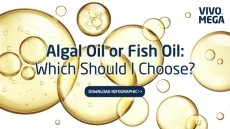Cognitive function market set to explode, predicts researcher

Dr Mark Schauss runs laboratory testing services firm Lab Interpretation and has spent the past two decades researching the relationship between diet and brain function.
He was speaking to NutraIngredients-USA last week before delivering a lecture on diet and the brain at the annual IAACN (International & American Associations of Clinical Nutritionists) Scientific Symposium.
While there is no miracle pill that can guarantee we will not lose our marbles, there was a growing body of human clinical data supporting the cognitive benefits of ingredients including glycerophosphocholine (GPC), phosphatidylserine (PS), acetyl-l-carnitine, curcumin and the omega-3 fatty acids EPA and DHA, claimed Schauss.
“I don’t think there has been enough discussion about the research that already exists in this field. There is now a surprising amount of human clinical trial data out there to support the benefits of ingredients such as GPC and we must share this information with a wider audience.
“As soon as someone big says something about this in the mainstream media, the market will absolutely explode.”
‘Inconsequential’ doses
As to what further research was needed, a longitudinal study over 30-40 years that looked at a range of factors thought to influence cognitive function, from diet to exercise and environmental exposure to toxins, would really improve understanding, he said.
But in the short-term, intervention trials in which subjects were given a combination of brain-healthy ingredients were also needed, along with studies using higher dosages of ingredients that may have been unjustly dismissed because doses used in previous trials were “inconsequential”, he claimed.
As for target groups, researchers should focus on volunteers exhibiting early stage or mild forms of cognitive decline plus groups in late middle age rather than those with advanced dementia, he said.
“Do you change your oil every 3,500 miles or wait until your engine breaks down?”
What role do genes play?
While research suggested that genetic factors could have a bearing on cognitive decline, our knowledge in this area was still fairly poor, he said.
Meanwhile, dietary interventions could help alter genetic risk factors, he said.
For example, while people with a certain polymorphism of the gene apoE appeared to be at higher risk of developing Alzheimer’s disease, this did not mean that there was nothing they could do to mitigate that increased risk.
“What is more interesting is the role diet and other factors can play in the expression of these genes.”
Which ingredients have the most potential?
The phospholipid GPC (L-α-glycerophosphatidylcholine) - which is sold in the US as a dietary supplement but in the EU as a drug - was one of the most promising brain health ingredients as it appeared to benefit mental acuity in people across a wide age range, from college students to elderly people, he said.
“I think the data is pretty compelling.”
Another substance generating real excitement was curcumin, which had been shown to help prevent the build up of damaging beta amyloid plaque between neurons in the brain, he said. “Researchers at UCLA have shown some really remarkable results.”
Meanwhile, evidence was growing about the benefits of phosphatidylserine (PS) and acetyl-l-carnitine (which were believed to help the brain form acetylcholine - essential for learning and memory); and long chain omega-3 fatty acids (which were critical for brain growth and development), he claimed.
What can consumers trust?
Speaking at the Supply Side East show in May, Datamonitor product launch analytics director Tom Vierhile said cognitive function was the functional foods category where the gap between interest and buying behavior was the widest.
In other words, while consumers were increasingly worried about losing mental acuity, they did not know which products to buy, he said.
But should clearer data emerge about which ingredients to back, the market opportunity was huge, he argued: “The cognitive health area is where there is the biggest gap between interest and actual purchasing behavior.”
Healthy ageing
Dr Mark Schauss’s lecture, entitled ‘Reversing Cognitive Decline and Invigorating the Aging Brain’ was delivered at the 20th Annual IAACN Scientific Symposium in Baltimore this weekend.
















